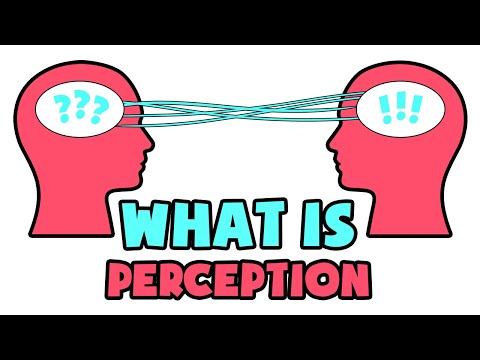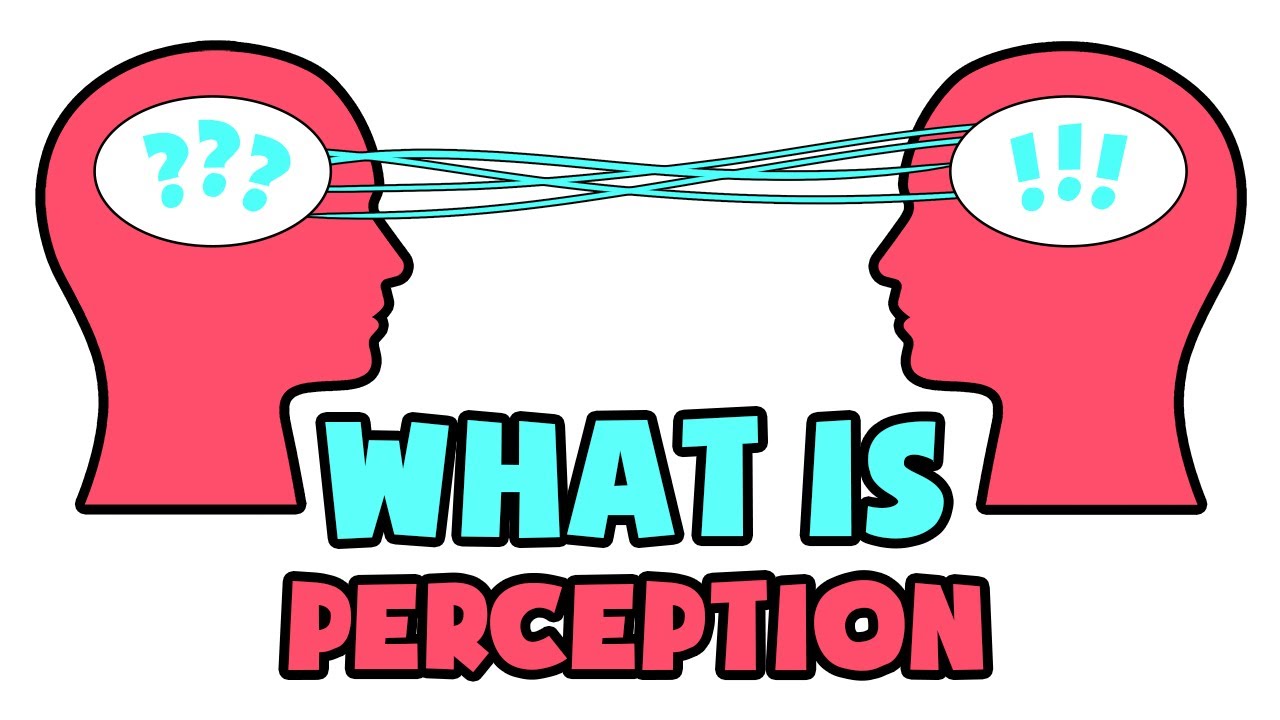Perception in psychology is a fascinating field that delves into the intricate mechanisms of the human mind and how we interpret the world around us. It examines how our senses gather information, and how our brain processes and organizes this information to create our unique understanding of reality. Perception is not simply about seeing or hearing; it encompasses a complex interplay between our senses, thoughts, emotions, and past experiences. Understanding perception can provide valuable insights into how our mind constructs our reality and shapes our behaviors and decisions. Through the study of perception, psychologists seek to unravel the mysteries of how we perceive colors, shapes, sounds, tastes, and smells. They explore how external stimuli are transformed into meaningful perceptions within our minds, examining phenomena such as illusions, attention, and the influence of context on our interpretations. This field also investigates the individual differences in perception, recognizing that each person’s unique set of experiences and cognitive processes can affect how they perceive and interpret the world. Whether you are curious about the science behind optical illusions, interested in understanding how we form judgments and make decisions, or simply fascinated by the intricacies of the human mind, the study of perception in psychology offers a captivating journey into the depths of human cognition. It provides a window into the complex workings of our senses and the subjective nature of our reality, shedding light on the ways in which our perceptions shape our understanding of the world and ourselves.

Perception in Psychology
| Aspect of Perception | Description | Importance |
|---|---|---|
| Sensation | Sensation refers to the process of detecting and encoding sensory stimuli from the environment through the five senses: vision, hearing, taste, smell, and touch. It involves the initial gathering of raw sensory information. | Sensation is crucial as it forms the foundation for perception. It allows us to experience the world around us and serves as the input for higher-level cognitive processes. |
| Perceptual Organization | Perceptual organization is the process by which the brain organizes and interprets sensory information into meaningful patterns and objects. It involves grouping and segregating incoming stimuli based on various principles, such as proximity, similarity, and closure. | Perceptual organization enables us to make sense of the complex and often ambiguous sensory input we receive. It helps us perceive objects, recognize faces, navigate our surroundings, and understand visual scenes. |
| Perceptual Constancy | Perceptual constancy refers to the ability to perceive objects as stable and unchanging despite variations in their sensory input. It allows us to recognize objects despite changes in lighting, distance, or viewing angle. | Perceptual constancy is essential for our understanding of the world. It ensures that we can identify familiar objects and maintain a consistent perception of our environment, even under varying conditions. |
| Depth Perception | Depth perception is the ability to perceive the relative distance of objects in three-dimensional space. It relies on various cues, such as binocular disparity, motion parallax, and linear perspective, to create a sense of depth and distance. | Depth perception is crucial for our navigation and interaction with the physical world. It allows us to judge distances accurately, perceive depth in scenes, and engage in activities like driving or playing sports. |
| Perceptual Illusions | Perceptual illusions are misperceptions or distortions in our perception of sensory stimuli. They occur when our brain misinterprets or misjudges incoming sensory information, leading to false perceptions. | Perceptual illusions provide valuable insights into the mechanisms of perception and the limitations of our perceptual systems. They demonstrate how our brain interprets sensory input and highlight the role of context, expectations, and prior knowledge in shaping our perceptions. |
“Unveiling Perception: The Art of Seeing Beyond the Surface in Under 2 Minutes”
What is Perception in Psychology?
Perception is a fundamental process in psychology that allows individuals to interpret and make sense of the world around them. It involves the way we acquire, organize, and interpret sensory information from our environment. Perception plays a critical role in shaping our thoughts, emotions, and behaviors, and it is a topic of great interest and study in the field of psychology.
The Process of Perception
Perception can be thought of as a three-step process: sensation, interpretation, and response. The process begins with sensation, which refers to the detection of sensory stimuli through our sensory organs, such as our eyes, ears, nose, tongue, and skin. When we see an object, for example, our eyes receive the visual stimuli, and this information is transmitted to the brain.
Once the sensory information is received, the next step is interpretation. This involves the brain processing and organizing the sensory data to make sense of it. The brain draws upon past experiences, knowledge, and expectations to give meaning to the sensory input. For instance, when we see a red traffic light, our brain interprets it as a signal to stop based on our prior understanding of traffic rules.
Finally, after the sensory information is interpreted, we respond to it. This response can be a behavioral reaction, such as stopping at a red light, or an emotional response, such as feeling joy when seeing a loved one. The process of perception is dynamic and continuous, occurring in real-time as we interact with our environment.
Factors Influencing Perception
Perception is not a passive process but is influenced by various factors that shape how we perceive the world. These factors include:
1. Sensory Thresholds
Sensory thresholds refer to the minimum amount of sensory stimulation required for us to perceive a stimulus. Each sensory system has its own threshold, meaning that some stimuli may be too weak for us to detect. For example, in hearing, the threshold is the quietest sound we can hear, while in vision, it is the faintest light we can see. Our perception can vary depending on these thresholds, as some individuals may have heightened sensitivity to certain stimuli, while others may have decreased sensitivity.
2. Attention
Attention plays a crucial role in perception, as it determines which stimuli we focus on and process. Our attention can be influenced by various factors, such as the salience of a stimulus, its novelty, or our personal interests and goals. For example, if we are engrossed in reading a book, we may not notice a loud noise in the background until it captures our attention.
3. Perceptual Set
Perceptual set refers to our predisposition to perceive the world in a certain way based on our expectations, beliefs, and experiences. Our prior experiences and cultural background shape our perceptual set and influence how we interpret and respond to stimuli. For instance, individuals from different cultures may perceive facial expressions differently, as their cultural norms and experiences contribute to their perceptual set.
4. Context
The context in which a stimulus is presented can greatly influence our perception of it. The same stimulus can be perceived differently depending on the surrounding environment or the situation. For example, a person wearing a white lab coat may be perceived differently if seen in a hospital compared to a fashion show. Context provides important cues that help us interpret and make sense of sensory information.
5. Emotional State
Our emotional state can also impact our perception. When we are experiencing strong emotions, such as fear or joy, our perception can be altered. For example, if we are in a fearful state, we may perceive harmless stimuli as threatening. Similarly, our emotional state can influence the interpretation of social cues, leading to biased perceptions of others’ intentions or emotions.
The Importance of Perception
Perception is vital for our everyday functioning and survival. It allows us to navigate our environment, make decisions, and interact with others effectively. Without perception, our world would appear as a jumble of disconnected sensory information, making it impossible to comprehend and respond appropriately.
Understanding perception is also crucial in various fields, such as marketing, design, and communication. By studying how perception works, professionals can create products, advertisements, and messages that effectively capture attention and influence consumer behavior.
Conclusion
Perception is a complex and fascinating process that is central to our experience of the world. It involves the acquisition, organization, and interpretation of sensory information, shaping our thoughts, emotions, and behaviors. Factors such as sensory thresholds, attention, perceptual set, context, and emotional state all influence how we perceive the world around us. By studying perception, psychologists gain valuable insights into human cognition and behavior, contributing to a better understanding of ourselves and the world we inhabit.

